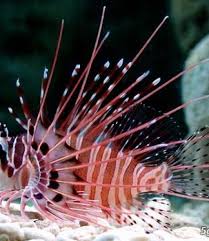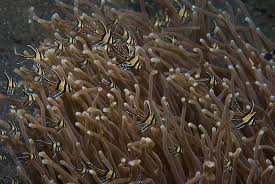
Confucianism, a philosophical and ethical system founded by Confucius in ancient China, emphasizes the importance of social harmony, respect for hierarchy, and the cultivation of virtue. At the core of Confucian thought lies the idea of maintaining order in society, both on a personal and collective level. Within this context, the dragon—a powerful and auspicious symbol in Chinese culture—also holds deep significance. While dragons in Chinese mythology often embody strength and transformation, in Confucianism, they represent a harmonious relationship between rulers and subjects, as well as the moral principles that sustain a well-ordered society. This article will explore the role of the dragon in Confucianism, its symbolic relationship with social order, and how it exemplifies the ideals of Confucian thought.
1. The Dragon as a Symbol of Power and Authority
In Confucianism, the dragon is closely associated with authority, power, and leadership. The dragon is not merely a creature of myth; it represents the divine power that upholds the structure of society. In Chinese culture, the dragon has long been linked with the emperor, the supreme ruler in the traditional hierarchical structure. Confucianism places great emphasis on the moral responsibility of rulers, and the dragon becomes a symbol of the just and virtuous leadership that is essential for maintaining social order.
The emperor, who was considered the “Son of Heaven” in ancient China, was often referred to as the “dragon’s child” or “dragon’s son,” emphasizing the divine right to rule. This relationship between the emperor and the dragon reflects the Confucian belief that a ruler should act in accordance with heaven’s will, or “Tian,” ensuring that their leadership promotes the well-being and harmony of the people.
The connection between the dragon and imperial power is evident in the dragon motifs found on imperial robes, thrones, and other symbols of royal authority. These representations of the dragon were intended to signal the emperor’s supreme status and the moral obligations that came with it. The dragon, in this context, acts as a guardian of the social hierarchy, ensuring that the emperor upholds Confucian virtues such as benevolence, righteousness, and propriety.
2. The Dragon and the Mandate of Heaven
One of the central principles in Confucianism is the concept of the “Mandate of Heaven” (Tianming), which posits that rulers are granted the right to govern by a higher cosmic force, often symbolized by heaven itself. The Mandate of Heaven is not a permanent right; it is contingent upon the ruler’s ability to govern justly and morally. If a ruler becomes corrupt or tyrannical, they are believed to lose the Mandate of Heaven, leading to their downfall.
The dragon plays a critical role in this concept, as it is often seen as the embodiment of the Mandate of Heaven. In many traditional Chinese representations, the emperor’s authority is symbolized by a dragon, while any loss of virtue or failure to fulfill the ruler’s duty is depicted by the decline of the dragon’s power or presence. The dragon, therefore, not only signifies divine authority but also serves as a reminder that leadership must align with heaven’s will. This alignment ensures the prosperity and stability of the nation.
In Confucian thought, the ruler’s ability to maintain the Mandate of Heaven is directly tied to their moral character and governance. A ruler who acts with virtue, according to Confucian values, ensures that society remains orderly and harmonious. The presence of the dragon symbolizes this alignment between the ruler’s actions and the divine, reinforcing the importance of moral governance in Confucian society.
3. The Role of the Dragon in Social Harmony
Confucianism places great importance on the concept of social harmony, which is achieved through the proper relationships between individuals, families, and the state. These relationships are governed by a set of hierarchical roles: ruler to subject, parent to child, older sibling to younger sibling, and husband to wife. Each relationship is characterized by a clear sense of duty and respect for the roles of others, and it is through these relationships that social order is maintained.
The dragon, as a symbol of social order, plays a key role in representing the harmonious balance between different levels of society. The idea of the dragon being a protector and guardian also extends to society as a whole, with the ruler acting as the dragon’s earthly counterpart. The emperor, as the dragon’s representative, is responsible for ensuring that the natural order is maintained and that the relationships within society are respectful and just.
In Confucianism, the dragon is seen as a symbol of the balance between strength and wisdom. It embodies the need for rulers to exercise power judiciously, with an emphasis on benevolence (ren), righteousness (yi), propriety (li), and wisdom (zhi). These virtues enable the ruler to act as a guiding force for the people, maintaining social harmony and preventing chaos. The dragon, with its majestic presence, represents the ruler’s role as both a protector and a wise leader.
4. The Dragon as a Moral Ideal in Confucian Thought
Confucianism emphasizes the cultivation of personal virtue and moral character. The ideal person in Confucian thought is one who embodies the five constant virtues: benevolence, righteousness, propriety, wisdom, and trustworthiness. These virtues are essential for maintaining personal and social harmony. The dragon, as a symbol of power, can also be interpreted as a moral ideal in Confucianism, representing the harmonious integration of these virtues into the leader’s character.
In this sense, the dragon is not only a symbol of external power but also an internal moral force. A ruler who possesses the qualities of the dragon—strength, wisdom, and benevolence—is seen as the embodiment of Confucian ideals. Just as the dragon navigates the natural world with grace and power, the ruler must navigate the complexities of governance with virtue and wisdom, ensuring that their actions reflect the moral principles of Confucianism.
In Confucian philosophy, the ruler is often viewed as the ultimate teacher and model for society. By embodying the virtues symbolized by the dragon, the ruler sets an example for others to follow. The dragon, in this context, is a reminder of the ruler’s responsibility to cultivate personal virtue and lead by example, showing the people how to live in accordance with the moral order of the universe.
5. The Dragon as a Representation of Confucian Virtues
Confucianism emphasizes the importance of filial piety (xiao), which is the respect and devotion children show to their parents, and loyalty (zhong), which is the devotion a subject shows to their ruler. The dragon’s connection to the emperor further strengthens the Confucian idea of loyalty, with the emperor being seen as the “father” of the nation. The emperor’s moral character, symbolized by the dragon, directly influences the behavior of the people, who are expected to show loyalty and reverence toward their ruler.
Additionally, the concept of harmony is central to Confucian thought. The dragon symbolizes this harmony, not just in the cosmos, but in human relationships as well. It represents the balance of forces and the integration of various elements, much like how Confucianism advocates for the balance between personal interests and societal duties. The dragon, as a symbol of social order, signifies the need for all members of society to respect their roles and maintain harmony within the family and the state.
Moreover, the dragon is a symbol of transformation, embodying the Confucian belief in self-cultivation and the continuous improvement of one’s character. Just as the dragon evolves through various stages of power and wisdom, so too should individuals strive to evolve morally, constantly working to cultivate virtue and enhance their capacity for righteousness.
6. The Dragon in Confucian Rituals and Practices
Rituals and ceremonies are central to Confucianism, as they provide a means to reinforce social harmony and reaffirm the relationships between individuals and society. The dragon plays a significant role in Confucian rituals, particularly those involving the emperor or the state. For example, during the emperor’s coronation or important state ceremonies, the dragon is often invoked as a symbol of the ruler’s divine right to govern and their responsibility to maintain order and harmony within the state.
Confucian rituals also emphasize respect for ancestors, which is a fundamental aspect of filial piety. In many traditional rituals, the dragon is used as a symbol of the continuity of family lineage and the moral responsibility that comes with being part of a family and society. The presence of the dragon in these rituals signifies the protection of ancestral values and the safeguarding of moral principles that guide the community.
7. Conclusion
In Confucianism, the dragon is much more than a mythical creature; it is a powerful symbol of authority, virtue, and the harmonious order of society. The dragon embodies the core principles of Confucian thought, such as the importance of moral leadership, the cultivation of virtue, and the maintenance of social harmony. As a symbol of the emperor’s divine authority and responsibility, the dragon reminds rulers of their duty to govern justly and wisely, in accordance with the Mandate of Heaven.
The dragon also represents the harmonious relationships between individuals in society, emphasizing the importance of respect, loyalty, and filial piety. In Confucian thought, the dragon is not only a symbol of power but also a reminder of the moral ideals that sustain social order. As such, the dragon continues to be a powerful emblem of Confucian values, inspiring leaders and individuals alike to cultivate virtue, uphold social harmony, and fulfill their responsibilities in the world.









